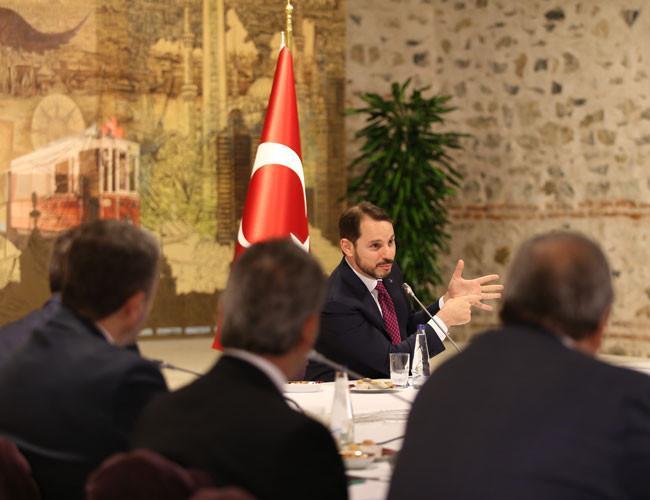
A quite busy calendar is set for Turkey’s economic administration after a nine-day public holiday for Eid al-Adha (the Feast of Sacrifice) with special emphasis on the preparations of the Medium-Term Economic Program (MEP), the public budget for 2019 and the country’s 11th Economic Development Plan.
After a long public holiday, which will end on Aug. 27, the first item in the economic administration calendar will be to announce the MEP.
Treasury and Finance Minister Berat Albayrak had said earlier he would announce the program in the first half of September, giving some clues about the program content with a target of 3 or 4 percent annual growth in 2019 and an inflation rate in single-digits again.
In a written statement on Aug. 9, he said the current account deficit would be balanced at around four percent of the GDP and the budget deficit at 1.5 percent.
Albayrak also pledged a saving campaign, which has recently kicked off, will be maintained in the upcoming period.
The ministry statement also mentioned the ministry targets a non-interest surplus of 5 billion Turkish Liras by the end of 2018 through savings and income-generating measures.
“The Treasury’s debt rollover ratio is to be reduced below 100 percent,” it added.
The country has however witnessed sharp fluctuations in foreign exchange markets in the days that followed the ministry statement mainly due to an escalation in a row between Turkey and the United States over pastor Andrew Brunson, who is being tried in Turkey.
Despite steps by the Central Bank and banking watchdog to underpin the lira, it has weakened 37 percent against the dollar this year.
In a conference call last week, Albayrak assured investors Turkey would emerge stronger from the crisis, insisting its banks were healthy but ready to provide support to the sector if needed.
The lira closed at 6.01 last week. The lira firmed to 6.055 against the U.S. currency on Aug. 24 from a close of 6.095, having weakened 1 percent on Aug. 23 after Turkish President Recep Tayyip Erdoğan’s spokesperson İbrahim Kalın accused the United States of waging “economic war.”
With the launch of the MEP, the government will define its targets and estimates for the years between 2019 and 2021. In the previous program, which was published last year for the years between 2018 and 2020, the growth target was 5.5 percent for each. The inflation forecast was 7 percent for 2018, 6 percent for 2019 and 5 percent for 2020.
Turkey’s July inflation hit its highest in more than 14 years on Aug. 3, touching nearly 16 percent on an annual basis as food prices surged, reflecting the impact of a falling currency.
Preparations for budget
Preparations for the 2019 budget have also commenced as the budget proposals from public institutions and organizations have been asked to be submitted. The Treasury and Finance Ministry wanted them to slash any unnecessary expenses and to focus on solid needs. All of these organizations submitted their budget proposals on Aug. 17 via an e-budget system to the ministry. One-by-one interviews, will now kick off with the top representative from these organizations and ministry officials. Their interview calendar will be finalized on late Aug. 27 and a fiscal plan will be prepared until Sept. 15 to announce how much money will be allocated to each ministry.
Development plan
The government is slated to announce the country’s 11th Development Plan, which will cover the years between 2019 and 2023, by the year-end. This plan will include educational, health, economic or judicial policies, which will be adopted in this five-year time span. The plan had originally been expected to be presented to parliament last June, but this was later postponed to the second half of the year due to elections. Forty-three specialized commissions have already been established to prepare the draft plan.